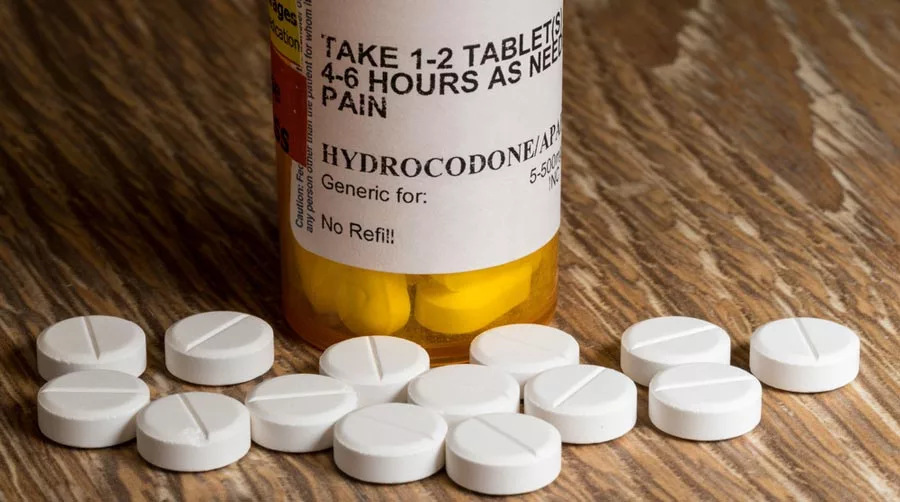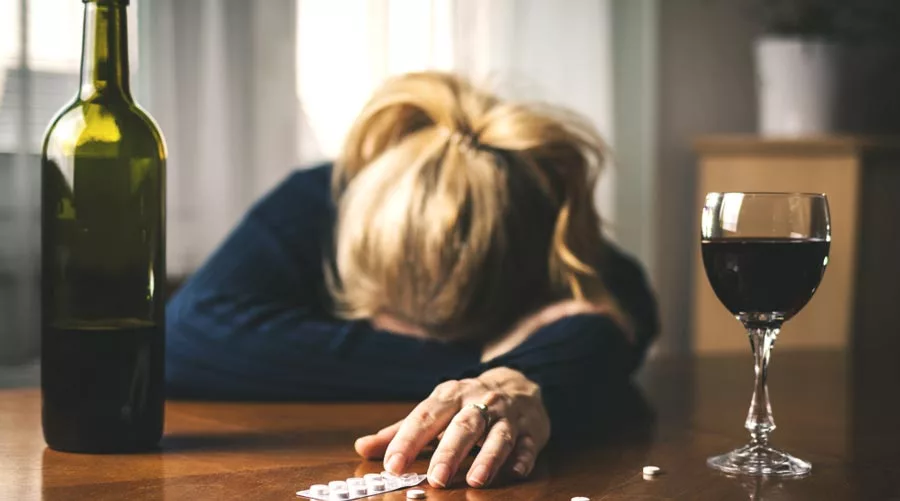Getting Help for Polysubstance Abuse at Catalina Behavioral Health
Many people struggle with alcohol abuse, but some people compound the effects of alcohol by mixing it with other substances. One of the most common forms of poly-substance abuse is the addition of some prescription drugs, namely hydrocodone. The problem with mixing hydrocodone and alcohol is that you compound the effects of each substance, making this a dangerous combination.
If this risk-filled combo has become one you (or someone you love) rely on, help is available at Catalina.
When you need assistance with substance abuse of any kind, Catalina Behavioral Health offers the robust services you need to start living the life you want again. Keep reading to learn more about evidence-based treatment options for those who want to stop using depressants like hydrocodone and alcohol, and get proven programs to support lasting sobriety with us today!
Overcome Hydrocodone and Alcohol – Reach Out Now!
Opioid Overdose: The Risk of Mixing Hydrocodone with Alcohol
Drinking alcohol is a common enough practice, even for people who do not struggle with alcohol abuse. The truth is that more people struggle with alcohol use disorder than you might think. According to a 2021 survey from the National Institute on Alcohol Abuse and Alcoholism, 29.5 million people over the age of 12 struggled with alcohol use disorder.
However, there is a separate issue that could prove risky and could even lead to a fatal overdose: mixing more than one substance at a time.
Mixing hydrocodone and alcohol makes the effects of both substances more intense. This is often the high that many people chase when it comes to taking prescription drugs or drinking alcohol. Here is a little bit more insight into how the effects of mixing hydrocodone can prove risky.
What to Know About Hydrocodone

While most people are familiar with the effects of alcohol, the side effects of hydrocodone are a little less clear. Hydrocodone is an FDA-approved prescription used to minimize the effects of chronic pain when other substances prove to be ineffective. It is a Schedule II semi-synthetic drug that works on the opioid receptors.
According to the Drug Enforcement Administration, these Schedule II drugs have a high rate of abuse and lead to either psychological or physical dependence on the drug.
The effects of hydrocodone for treating severe pain are significant. Some of the effects of the drug when used to treat chronic pain include:
- Dry mouth
- Stomach pain, nausea, vomiting, and upset of the digestive system
- Constipation
- Headaches and backaches
- Sore muscles
- Ringing in the ears
- Extreme drowsiness, oversleeping, or other sleep problems
- Swelling in the extremities
- Shaking in localized parts of the body
What to Know About Alcohol Abuse
Oftentimes, people will turn to addiction treatment for prescribed hydrocodone and then realize that they may have an issue with alcohol as well as drug abuse. It is relatively common to find people who are mixing alcohol with hydrocodone to compound the effects of each.
Before we examine the danger that accompanies the combination, it is important to know what is at risk with alcohol abuse. Here are a few symptoms that may indicate you are overdoing it and could be at risk of alcohol poisoning:
- Nausea or vomiting
- Issues with breathing and heart rate
- Blacking out
- Seizures
- Coma
The problem is that both alcohol and hydrocodone work on the opioid receptors and have some of the same symptoms. When you start mixing alcohol with hydrocodone, those symptoms are magnified and could lead to severe issues.
Central Nervous System Depressants: Mixing Hydrocodone and Alcohol
Perhaps you are drawn to both hydrocodone and alcohol because they create feelings of well-being in the short term. Especially if you struggle with severe pain, they can offer relief for a short period of time. This relief could prove powerful enough to convince your body and brain that they need more of both substances.
Unfortunately, mixing alcohol and opioids is always a bad idea. Both are depressants, meaning that they act as a means to relax you. The problem is that they inspire these feelings of lessened pain and more relaxation through physical means in the body. Namely, they affect your memory, breathing, and heart rate.
If you decide to mix hydrocodone and alcohol, you are at a greater risk of opioid overdose. Because the side effects of both substances are so similar, they often compound the effects to disastrous effects. When taking one or the other, you might have those feelings of relief from severe pain but they can have profound impacts on your breathing and heart rate.
In other words, you could stop breathing, suffer a blackout, or even suffer from heart failure, which can be fatal.
How Common is Hydrocodone and Alcohol Overdose?

Even though it is clear that the negative consequences of mixing alcohol and hydrocodone are extremely dangerous, you might be surprised at how often it happens.
According to data from the Centers for Disease Control, emergency room admissions for hydrocodone and similar drugs had a high incidence rate of alcohol consumption as well. They found that 18.5 percent of admissions had both substances in the patient’s system at the time of admission.
It is also important to look at fatal overdoses of opioid painkillers. According to the same study, roughly 22.1 percent of the deaths associated with drugs in the same class as hydrocodone also had consumed alcohol prior to their admission which may have influenced the disastrous effects of the drugs.
While the combination can feel good in the short term, mixing opioid drugs like hydrocodone and alcohol is among the more fatal combinations reported nationwide, according to SAMHSA (the Substance Abuse and Mental Health Services Administration).
Although these are grim statistics, they provide a real reminder of the need to reach out for alcohol and hydrocodone abuse treatment options at Catalina Behavioral Health if you are using both substances together.
24 Hour Detox and Rehab Helpline – Call Us Now!
What to Do If You Consume Alcohol While Taking Hydrocodone
Even if you are taking hydrocodone legally through a prescription from your doctor for chronic pain, you should never drink alcohol with hydrocodone. The risk of respiratory depression and heart failure is simply too great to take chances.
The Drug Enforcement Administration (DEA) notes the importance of drugs like naloxone for the treatment of opioid overdose. It can temporarily reverse the effects of what could have been a fatal dose of opioids, allowing doctors and medical professionals time and space to administer rigorous treatment options.
If you or a loved one struggles with opioids, it is a good idea to have naloxone on hand.
There is one small problem with administering naloxone when alcohol is involved. It may not prove as effective when you start to mix substances. It can turn back the clock on an opioid overdose, but it has little to no effect on alcohol abuse. If you have consumed enough alcohol to meet the criteria for alcohol poisoning, naloxone may not have the desired effect.
The best thing you can do if you start to notice the symptoms of severe respiratory depression or issues with heart rate is to contact emergency medical services as soon as possible.
Our Methods of Addiction Treatment for Polysubstance Abuse

When you struggle with polysubstance abuse such as getting cross faded on alcohol and marijuana (and hydrocodone), you run the risk of more serious consequences for your health. It puts your life in the balance while you chase that high that leaves you feeling pain-free and more relaxed. You can become both psychologically and physically dependent on both.
It is important to know what your treatment options are before your substance abuse gets out of hand.
Medically-Supervised Detox
The first step on the path to addiction treatment is a medically supervised detox. When you struggle with both alcohol and hydrocodone addiction, getting those substances out of your system can be not just uncomfortable but also dangerous. At Catalina Behavioral Health, we can help you detox in much greater comfort.
You will have around-the-clock care from a team of medical professionals who can help you treat pain without giving in to more substance abuse. The goal is to keep you comfortable, both physically and psychologically. Our counselors and staff are available to help you through these uncomfortable early days of sobriety.
Medication-Assisted Treatment
We offer medication-assisted treatment to combat your withdrawal symptoms and to make you feel more comfortable.
However, medication-assisted treatment can be ongoing, even as you segue into outpatient treatment. Some prescriptions can minimize the effects of alcohol and opioids, making you less likely to use them when you return to a home setting. Medical treatment should be the first step you take when entering into addiction treatment.
While medication-assisted treatment may not be right for everyone, it can be a very helpful tool for some. If this is something that might benefit you, you can discuss it with a healthcare provider who is experienced and knowledgeable about substance abuse and the use of medications to minimize its effects long-term.
Residential or Inpatient Rehab at Catalina

As your withdrawal symptoms lessen, you can transition into a short-term inpatient rehab. Many people will stay with Catalina Behavioral Health for 30 to 90 days while they engage in a rigorous, evidence-based treatment regimen. We use a combination of proven techniques to give you the greatest chance of recovery from prescription painkillers and alcohol abuse.
For example, some of the approaches we will use to treat your polysubstance abuse include:
- Cognitive behavioral therapy (CBT) to change the way you view events
- Dialectical behavior therapy (DBT) to give you coping skills to negate substance abuse
- Eye Movement Desensitization and Reprocessing (EMDR) for trauma
This multi-disciplinary approach allows us to offer you all of the skills and tools you need to prevent relapse when you leave the safe confines of our rigorous inpatient program. You will learn coping skills, identify your triggers, and cultivate a support system while in our care.
We also offer both 12-step and non-12-step meetings where you can share your struggles with like-minded peers who are all dedicated to sober living. This not only allows you a safe space to share but also gives you peers who can offer feedback, suggestions, and tips to maintain sobriety when you leave the inpatient program.
Get Detox and Rehab Help at Catalina Now!
Get the Help You Need at Catalina Behavioral Health
When you need intense treatment for the risky situation of mixing hydrocodone and alcohol, it is time to reach out to Catalina Behavioral Health. We provide a treatment team that understands your unique situation and can set you on the path to a sober life with medication-assisted treatment and medical detox.
If you are ready to stop taking chances with your life when mixing hydrocodone with alcohol, our warm and welcoming Admissions team is waiting to hear from you. Give us a call today to learn more about the evidence-based treatments we offer to help you or your loved one and get options for support now!





